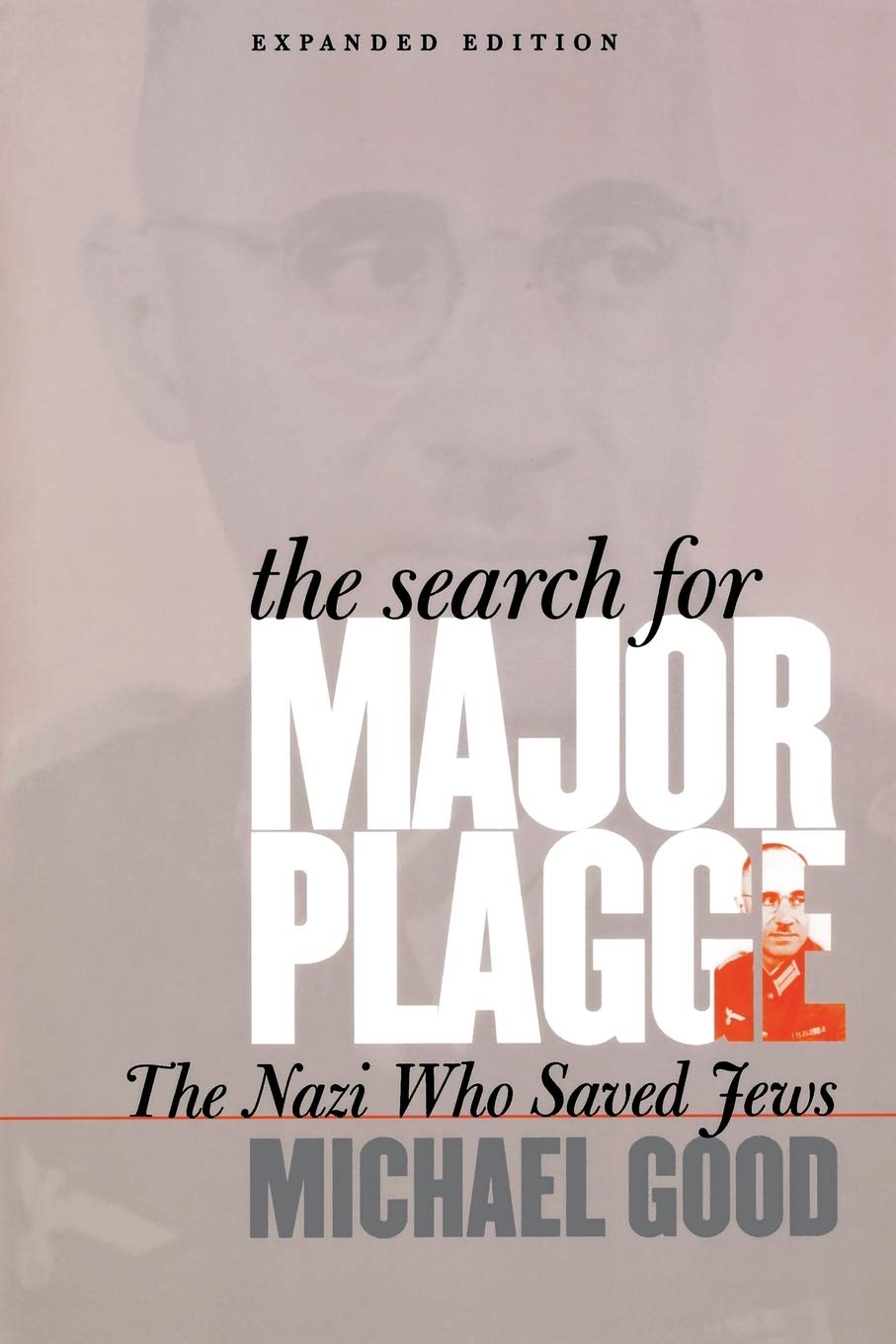
The Search for Major Plagge: The Nazi Who Saved Jews, Expanded Edition
FREE Shipping
The Search for Major Plagge: The Nazi Who Saved Jews, Expanded Edition
- Brand: Unbranded

Description
Moreover, it takes perhaps a bit of goodwill, occasionally a good idea, and dedication to the task at hand. The court did not exonerate Plagge completely, because it believed that his actions had been motivated by humanitarianism rather than opposition to Nazism. He had wanted to study medicine but was prevented from the longer study program required due to his family's financial problems. Although unable to stop the SS from liquidating the remaining prisoners in July 1944, Plagge managed to warn the prisoners of the imminent arrival of SS killing squads, allowing about 200 to successfully hide from the SS and survive until the Red Army's capture of Vilnius.
He was cleared of war crimes after survivors testified at his trial, but he insisted on being classified as a "fellow traveller". The SS arrived on July 3, 1944 and took 500 prisoners to the forest of Peneriai where they were killed. On certain occasions, Plagge's policy of non-confrontation with the SS put him "in a catch-22 situation with serious moral implications", according to historian Kim Priemel. Plagge gave work certificates to Jewish men, certifying them as essential and skilled workers regardless of their actual backgrounds. During World War II, he used his position as a staff officer in the German Army to employ and protect Jews in the Vilna Ghetto.Dr Good tracked down survivors and documents to put together a case for Yad Vashem to recognise Plagge's heroism. However, Plagge's collaboration was "arguably a rational choice", because he was able to save more Jews than any other Wehrmacht rescuer in Vilnius. In 1943, after negotiations with the SS, Plagge was able to expand his workforce from 394 Jews in July to more than 1,000 when the ghetto was liquidated in September. Plagge and his former subordinates told the court about his efforts to help Jewish forced laborers; Plagge's lawyer asked for him to be classified as a fellow traveler rather than an active Nazi. On 1 September, about 300 of Plagge's workers were seized by the SS for transportation to the Klooga concentration camp.
The account of finding out who his parents' rescuer was and how they obtained recognition for his work is told by a non-historian. The historian Kim Priemel, examining Wehrmacht rescuers in Vilnius, concludes that Plagge "remained within a 'grey zone' of moral compromise, which, however, was vital to the success of [his] rescue efforts". Plagge and his unit arrived in Vilnius in July 1941 and soon they witnessed the genocide being carried out against the Jews of that area. It only required a convincing strength that anyone can draw from the depths of a moral conscience everyone has.The SS wing of the Nazi party were particularly brutal and heartless and their behavior is chronicled here as well. In 1941, he was put in command of an engineering unit, Heereskraftfahrpark 562 (vehicle maintenance unit 562, or HKP 562; literally, "Army motor-vehicle park"), which maintained and repaired military vehicles. The documentary tells a good story about one courageous man who found a few other good men to provide a safe haven for a few hundred Jewish prisoners who found jobs as auto mechanics even though they had to learn about auto repair starting from scratch. With an SS officer at his side, he told the inmates that they "will be escorted during this evacuation by the SS, which, as you know, is an organisation devoted to the protection of refugees.
This expanded edition features new photographs and a new epilogue on the impact of the discovery of Karl Plagge―especially the story of 83-year-old Alfons von Deschwanden, who, after fifty years of silence, came forward as a veteran of Plagge’s unit. The Plagge Group disagreed, pointing out that Wehrmacht soldiers associating with Jews were threatened with being treated as Jews; indeed, Wehrmacht Sergeant Anton Schmid had been executed in 1942 for helping Jews in the Vilna Ghetto. It concludes with some thought as to his motivation, and the account of how the 'Plagge group' fought for official recognition of his endeavours. Good decides that the saintly Major Plagge must be commemorated, but is hindered by the fact, that none of the people who honor the Major's memory, even know his first name!Michael Good has appeared on C-SPAN, as a speaker in Israel and Germany, and in schools, libraries, churches, and synagogues across the United States.
- Fruugo ID: 258392218-563234582
- EAN: 764486781913
-
Sold by: Fruugo
